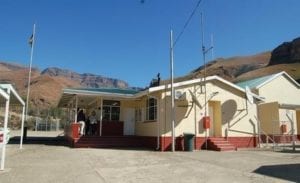Pretoria. – Leaders of African states need the political will to institute infrastructure and agreements to achieve a significant improvement in between their countries.
This was the conclusion reached last week at a conference in Kempton Park that looked into how African countries can integrate their border-post systems to achieve more efficient trade in the region. Integration could include a single-view system and one-stop border posts to bring customs duties in line with each other – which is essential to save time and money in doing business and thus promote economic growth between countries. According to a USAid report high import and export costs impede trade-based growth in southern Africa. They also restrict the variety of products being traded and increase the price of consumer goods, including food. “This is a serious problem in a region where transport-related costs make up 14% of the final consumer price of a product which is double the global average,” says USAid. Studies show that transport costs for African countries without a coastline are among the highest in the world. The situation is aggravated by border-post delays owing to a absence of coordination and sharing of information between different border agencies – such as immigration services, customs, police and agriculture. In addition, numerous physical inspections and a lack of electronic links between the customs systems of different countries – as well as the numerous returns declaring customs data – lead to further delays and higher costs. According to the World Bank’s Doing Business report, governments can create an environment for entrepreneurs to seek business opportunities outside their national borders if unnecessary trade impediments are removed.A sub-Saharan Africa study estimated that if export costs were 10% less through more efficient trade processes, one could see a 4.7% increase in exports.
If trade costs came down 50% globally, this would boost manufacturing to $377bn a year and treble the benefits to consumers through reduced tariffs. Another study on Africa south of the Sahara shows that when travelling times are shortened by a single day, this results in a 7% increase in exports. In Ghana customs revenue swelled 49% in the first 18 months after its integrated electronic data system for customs procedures was instituted. Source: http://www.fin24.com







